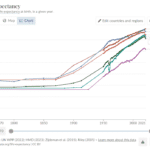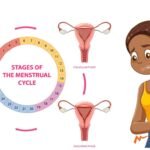Online Pregnancy Test: Due Date, Weight Gain & Trimester Calculator
Pregnancy is an exciting yet complex journey that requires careful planning and understanding to ensure the health and well-being of both the mother and the developing baby. With advancements in technology and medical research, expectant mothers have access to more precise tools and advice to navigate this crucial period. This article explores the latest advice based on recent studies and how modern pregnancy calculators can assist in managing your pregnancy journey.
Pregnancy Calculator

Pregnancy Weight Tracker & Nutrition App
Are you looking for personalized diet plans or Food recommendations along with Pregnancy Weight Gain Tracking, Ovulation Calculator, Pregnancy Chances Predictor,Trimester tracking, Tips and Reccomondations Week by Week Pregnancy. Get so much more, all for FREE!
Preliminary IDEA & Accuracy of pregnancy calculator
Online pregnancy test: Are they Accurate?
An online pregnancy test is a digital tool designed to assess the likelihood of pregnancy based on the symptoms and information provided by the user. These tests cannot confirm pregnancy but provide guidance on whether you should take an actual pregnancy test or consult a healthcare provider.

- How Does It Work?
- Last Menstrual Period (LMP): To estimate if a period is missed.
- Symptoms: Nausea, fatigue, breast tenderness, or frequent urination.
- Lifestyle Factors: Recent sexual activity, use of contraceptives, or ovulation tracking.
- Advantages of Pregnancy Tests Online
- Convenience: Quick and accessible from anywhere.
- Preliminary Guidance: Helps users determine if a physical test is necessary.
- Educational: Provides information on early pregnancy symptoms and next steps.
EARLY SIGNS OF PREGNANCY
How i knew i was pregnant before missed period?
For many women, the first definitive sign of pregnancy is a missed period. However, subtle physical and emotional changes can signal pregnancy even before the period is due. These early signs are often linked to hormonal shifts and can vary greatly from person to person. Here’s a detailed explanation of how you might recognize pregnancy before a missed period.

1. Unusual Fatigue
One of the earliest and most common signs of pregnancy is overwhelming fatigue. Even before a missed period, I felt unusually tired despite getting adequate sleep. This exhaustion was unlike anything I had experienced before and made me wonder if something had changed in my body. Find out your Fitness Age, if you feel tired all the time!
Why It Happens:
During early pregnancy, the body produces more progesterone, a hormone that prepares the uterus for implantation and supports the pregnancy. High levels of progesterone, combined with the body adjusting to changes in blood sugar and blood pressure, can leave you feeling drained.
2. Tender or Swollen Breasts
A noticeable change in breast tenderness or sensitivity was another clue. My breasts felt heavier, fuller, and more sensitive to touch, similar to premenstrual symptoms but more intense.
Why It Happens:
Rising levels of estrogen and progesterone cause the breasts to prepare for milk production. The increased blood flow and hormonal changes can make the breasts feel sore or swollen.
3. Heightened Sense of Smell
I started noticing strong aversions to certain smells, such as coffee, perfume, or food cooking. These smells, which had never bothered me before, suddenly felt overwhelming.
Why It Happens:
During early pregnancy, the body becomes more sensitive to smells, a phenomenon linked to the hormone human chorionic gonadotropin (hCG). This heightened sense of smell might be an evolutionary trait to protect the developing embryo from harmful substances.
4. Nausea or Morning Sickness
Even before I missed my period, I experienced mild nausea, particularly in the mornings. While it wasn’t severe, the queasiness was a new and noticeable sensation.
Why It Happens:
Morning sickness is caused by increased levels of hCG and estrogen. Although it is more common after the 6th week of pregnancy, some women may experience nausea earlier.
5. Mild Cramping and Spotting
I felt light cramping, similar to period cramps, but without the onset of my period. There was also a small amount of spotting, which I initially mistook for the start of my cycle. Check our Periods Calculator here
Why It Happens:
This could be implantation bleeding, which occurs when the fertilized egg attaches to the uterine lining. Implantation typically happens 6–12 days after ovulation, which can coincide with early pregnancy symptoms.
6. Changes in Cervical Mucus
I noticed a change in the consistency of my cervical mucus. It became thicker, creamier, and more noticeable than usual.
Why It Happens:
In early pregnancy, the body produces more cervical mucus to protect the growing embryo and prevent infections.
7. Emotional Sensitivity
I felt more emotional than usual, with sudden mood swings or feelings of anxiety. Small things that wouldn’t typically affect me seemed to have a more profound emotional impact.
Why It Happens:
Early pregnancy hormones can significantly affect neurotransmitters in the brain, leading to heightened emotions and mood swings.
8. Frequent Urination
Even before missing my period, I noticed I was using the bathroom more often. The need to urinate frequently was consistent throughout the day and night.
Why It Happens:
The body increases blood flow and kidney activity during early pregnancy to accommodate the growing embryo, leading to frequent urination.
9. Elevated Basal Body Temperature
Since I was tracking my ovulation using basal body temperature (BBT), I noticed that my temperature remained elevated beyond the typical luteal phase. This sustained rise in BBT was one of the earliest signs I was pregnant.
Why It Happens:
Progesterone, which rises after ovulation, keeps your basal body temperature higher. If pregnancy occurs, these elevated levels persist.
10. Intuition or Gut Feeling
Sometimes, it was simply a gut feeling. Something felt different about my body, even if I couldn’t pinpoint what it was. This intuitive awareness made me more attuned to subtle changes.
Why It Happens:
While there is no scientific explanation, many women report a strong sense of knowing they are pregnant before any physical symptoms appear.
Free pregnancy calculator app
How to Use Pregnancy Due Date Predictor
- Enter Your Last Menstrual Period (LMP): Input the date of your last menstrual period to calculate your estimated due date and current pregnancy week.
- Input Pre-Pregnancy and Current Weight: Track your weight gain progress to ensure it aligns with recommended guidelines for healthy pregnancy.
- Calculate: Click the calculate button to receive your estimated due date, current trimester, and weight gain status.
The calculator processes this information using advanced algorithms to deliver a customized pregnancy overview.
NUTRITION AND PREGNANCY
key Nutrients for Pregnancy

- Folic Acid:
- Essential for preventing neural tube defects.
- Sources: Leafy greens, fortified cereals, beans, and citrus fruits.
- Iron:
- Supports increased blood volume and prevents anemia.
- Sources: Lean meats, spinach, lentils, and fortified grains.
- Calcium:
- Necessary for fetal bone and teeth development.
- Sources: Milk, cheese, yogurt, and almonds.
- Protein:
- Vital for fetal tissue and organ development.
- Sources: Eggs, fish, chicken, tofu, and legumes.
- Omega-3 Fatty Acids:
- Supports brain and eye development.
- Sources: Salmon, walnuts, flaxseeds, and chia seeds.
- Fiber:
- Helps prevent constipation.
- Sources: Whole grains, fruits, and vegetables.
- Hydration:
- Ensures proper circulation and amniotic fluid levels.
- Aim for at least 8–10 glasses of water daily.
Free Pregnancy diet chart pdf download
Pregnancy Diet Charts
First Trimester (Weeks 1–12): 1 to 3 Month Pregnancy Diet Chart
- Focus on folic acid, protein, and healthy carbs.
- Small, frequent meals can help manage nausea.
| Meal | Food Suggestions |
|---|---|
| Breakfast | Whole-grain toast with avocado and boiled eggs. |
| Snack | Banana with a handful of nuts. |
| Lunch | Lentil soup, brown rice, and steamed vegetables. |
| Snack | Greek yogurt with fresh berries and chia seeds. |
| Dinner | Grilled chicken, quinoa, and sautéed spinach. |
| Bedtime Snack | Warm milk with a piece of dark chocolate. |
Second Trimester (Weeks 13–26): 3 to 6 Month Pregnancy Diet Chart
- Increase calorie intake by 300–350 kcal/day.
- Emphasize calcium, vitamin D, and iron.
| Meal | Food Suggestions |
|---|---|
| Breakfast | Oatmeal with sliced fruit, honey, and almonds. |
| Snack | Carrot sticks with hummus or cottage cheese. |
| Lunch | Grilled salmon, mashed sweet potatoes, and broccoli. |
| Snack | Whole-grain crackers with peanut butter. |
| Dinner | Turkey stir-fry with brown rice and mixed vegetables. |
| Bedtime Snack | A bowl of fresh strawberries with a dollop of yogurt. |
Third Trimester (Weeks 27–40): 6 to 9 Month Pregnancy Diet Chart
- Increase calorie intake by an additional 450 kcal/day.
- Prioritize omega-3 fatty acids, fiber, and iron.
| Meal | Food Suggestions |
|---|---|
| Breakfast | Scrambled eggs with spinach and whole-grain toast. |
| Snack | Smoothie with milk, banana, flaxseeds, and protein powder. |
| Lunch | Grilled tofu, quinoa, and roasted asparagus. |
| Snack | Apple slices with almond butter. |
| Dinner | Lean beef stew with sweet potatoes and green beans. |
| Bedtime Snack | Warm milk with a handful of dates. |
Foods to Avoid During Pregnancy
- Raw or Undercooked Foods:
- Sushi, raw eggs, or undercooked meats (risk of foodborne illnesses).
- High-Mercury Fish:
- Avoid shark, swordfish, and king mackerel.
- Excessive Caffeine:
- Limit to 200 mg/day (about one cup of coffee).
- Unpasteurized Products:
- Avoid unpasteurized milk, cheese, or juices.
- Processed Foods:
- Reduce intake of sugary snacks, sodas, and deep-fried foods.
Additional Tips for a Healthy Pregnancy Diet
- Stay Active: Light exercises like walking can help manage weight and improve digestion.
- Plan Balanced Meals: Include a mix of proteins, carbs, fats, and fiber in every meal.
- Eat Small, Frequent Meals: Helps manage nausea and prevent heartburn.
- Listen to Your Body: Eat when hungry but avoid overeating.





